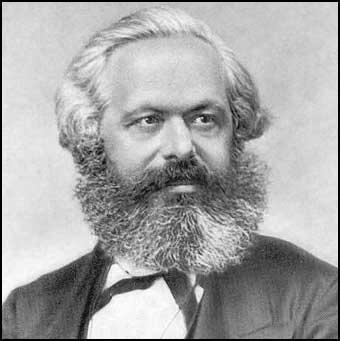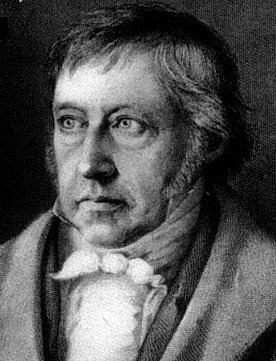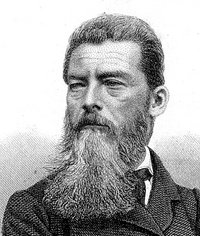Theories of Human Nature: Chapter 14 – Marx – Part 1

Marx: The Economic Basis of Society
(I am teaching the course “Philosophy of the Human Person” at a local university. These are my notes of the primary text for the course, Twelve Theories of Human Nature. )
We are interested in Marxist theory, not in the various ways it may have been implemented. [Think of the parallel with Christianity. If you are a Christian and someone says "Christians conducted the Crusades and Inquisition, they may have collaborated with the Nazis and protected pedophile priests," you answer that none of that is Christian behavior. A Marxist can say the same about Stalin or Mao or North Korea.] Who was Karl Marx (1818 – 1883)? “Marx was the greatest critical theorist of the Industrial Revolution and nineteenth-century capitalism … Although hostile to religion, Marx inherited an ideal of human equality and freedom from Christianity, and he shared the Enlightenment hope that scientific method could diagnose and resolve the problems of human society … Behind his … theorizing was a prophetic, quasi-religious zeal to show the way toward a secular form of salvation.”

Hegel
Marx studied at the University of Berlin in the mid nineteenth-century at a time and place when G.W.F. Hegel’s thought was dominant. Hegel believed in a progressive human history where Geist—mind, spirit or god—develops throughout history. All human history is “the progressive self-realization of Geist.” In other words human social life evolves in a progressive direction as more adequate ideas of reality slowly emerging leading to greater consciousness, self-awareness and freedom. [Hegel’s philosophy is notoriously complex and abstruse. But the process in large part takes place as a dialectic between ideas. A thesis is offered, its antithesis advanced, and a synthesis emerges.] Hegel believed that mental and cultural development eventually reaches a state of absolute knowledge. Right Hegelians believed that the 19th Prussian state had reached a near perfect state of development; left Hegelians believed it had not, that the society was far from ideal and it was up to people to make it better.
[Consider the parallels with politics in the USA today. From the conservative right we hear that “the USA is the greatest nation ever,” “American love it or leave it,” “God loves America most,” "We are an exceptional nation," etc. Thus change is unnecessary. From the progressive left comes the idea that there is much unfilled promise in our era, thus the need to change things for the better by advancing a progressive political agenda. Conservatives want to conserve---traditional marriage, white supremacy, current economic system---or go backward---get rid of social security, women in the labor force, minimum wage, contraception, labor unions, Medicare, Medicaid, etc. Liberals want to liberate and free people from undue burdens like lack of health care and affordable education, minimum wage jobs, unwanted pregnancies, racial prejudice, etc. Obviously this is all more complicated than this but that’s the general idea.]

Feuerbach
The other main influence on Marx was Ludwig Feuerbach. Rather than agreeing with Hegel that geist or god realizes itself (himself) throughout history, humans create religion as an idealized version of life in this world. [This world is so bad that people imagine a perfect world.] Here Feuerbach uses another idea of Hegel’s—the idea of alienation in which subjects confront objects unknown and alien from themselves. Feuerbach argued that people become alienated when “they project their own human potential into theological fantasies and undervalue their actual lives.” Feuerbach argued that metaphysics and theology are expressions of our emotions disguised as claims about reality. “So he saw religion as symptom of human alienation, from which we must free ourselves by realizing our destiny in this world.”
All this led Marx to conclude that Hegel was right to be concerned about truth and progress in history, but wrong to think the natural, historical world was a manifestation of the development of spirit or mind. Instead Marx argued that thought and mind are manifestations of the natural world, of material conditions. (Hence the idea that Marx turned Hegel upside down.) The driving force of social change are not ideas about gods or cosmic spirits, but economic conditions. And alienation is not primarily religious but social and economic. In a capitalist system we are alienated from our labor because we don’t work for ourselves, but for others who own the means of production and the products of our labor. Capitalists try to maximize profit, exploiting their workers by paying them the minimum needed for their survival.
The Materialist Theory of History – Marx was an atheist and a materialist. He thought of himself as a social scientist that had discovered a scientific way to study “economic history of human society.” He was looking for general socio-economic laws that applied to human history both synchronically and diachronically. Here is what he argued.
At any given time, synchronically, economics determines ideology. The rich and powerful defend capitalism because it serves their interests. Their rhetoric regarding freedom of enterprise, trade, and markets expresses the self-interest of those who possess land and money. The rest are left “free to starve,” if the labor markets won’t give them jobs. [Or they can be incarcerated or killed in foreign wars that serve their capitalistic interests.] Marx claims that social, legal, and political power were in the hands of capitalists, especially the very wealthy, although government has tried to regulate the excesses of capitalism by banning child labor, minimum wage laws, health and safety laws, environmental protection, some health care and retirement benefits, etc. [Marx would not be surprised to find that in a rich country like America today, the capitalists and financiers try to influence, if not control, any government attempts to reign in their excess profits or contributions to climate and other environmental degradation. The government becomes a wholly owned subsidiary of business.]
Looking across time, diachronically, Marx recognized that economic and technological development will result in social, political and ideological change. Consider how agriculture, slavery, feudalism, or the industrial revolution transformed social and political life. Marx’s salient insight is that a materialist, economic theory of history explains these transformations. A brief summary of this insight can be seen in this passage:
In the social production of their existence, men inevitably enter into definite relations, which are independent of their will, namely relations of production appropriate to a given stage in the development of their material forces of production. The totality of these relations of production constitutes the economic structure of society, the real foundation, on which arises a legal and political superstructure and to which correspond definite forms of social consciousness. The mode of production of material life conditions the general process of social, political and intellectual life. It is not the consciousness of men that determines their existence, but their social existence that determines their consciousness …
The economic base of a society provides the foundation of one’s social life, and it conditions that social life to a great extent. To understand this would be pay attention the distinctions Marx draws between:
a) Material powers of production: natural resources including land, climate, plants, animals, minerals; technology such as tools, machinery, communication systems; and human resources like labor power and skills.
b) Economic Structure: the organizational structure of work, division of labor, authority in the workplace, legal power of ownership, systems of rewards and payments, legal concepts of property, economic concepts like money, capital, and wages.
c) Ideological Superstructure: social beliefs, morality, laws, politics, religion, and philosophy.
It is not exactly clear what Marx meant by economics being the basis or foundation of social life. Is that foundation a, or a and b? Does a determine b and therefore c? Or does b determine c alone? Or do a and b determine c? [I think the argument as a whole works even if some of the details aren’t entirely clear.] The key question is how much conditioning or influencing or determining did Marx believe that economics had on ideology. Surely we have to eat before we can act or think but it doesn’t seem to follow that this determines everything we do or think. Still the economic structure of a society sets limits on and influences how people think.
[For example, the economic structure determines how you can earn your bread in a society, and thus the way most people act a large part of the time. But consider how earning your money selling cigarettes, crude oil, real estate, alcohol, or assault weapons significantly influences how you think about those things. Or consider how growing up in a sub-culture with few economic opportunities strongly influences how you think about occupations like small time drug dealer, prostitute, professional boxing, as well as about law enforcement, courts, laws, foreign wars, etc. Consider the vastly different political views of those in different socio-economic classes. You can probably think of all sorts of other examples of this connection between economics and ideology.]
While none of this implies hard determinism, Marx thought that capitalism would become gradually more unstable, class struggle would increase, with the rich getting richer and the poor getting poorer.
[These themes were in large part the subject of the economist Thomas Piketty’s recent worldwide best-seller.

 Capital in the Twenty-First Century
Capital in the Twenty-First Century

Piketty is arguably the world's foremost expert on income and wealth inequality. His "central thesis is that when the rate of return on capital (r) is greater than the rate of economic growth (g) over the long term, the result is concentration of wealth, and this unequal distribution of wealth causes social and economic instability. Piketty proposes a global system of progressive wealth taxes to help reduce inequality and avoid the vast majority of wealth coming under the control of a tiny minority."1 Consider how your own reaction to such claims is largely determined by your own socio-economic background. I have written about these issues here, here, here and here.]
The extent to which Marx’s predictions have come true is open to debate. On the one hand, capitalism more or less reins in first world countries, although technically we have mixed economies, on the other hand the strengthening of the social safety net in first world countries may have prevented the kind of upheaval that Marx envisioned. Moreover 3rd world countries may be the proletariat for 1st world countries today.
1. http://en.wikipedia.org/wiki/Capital_...



